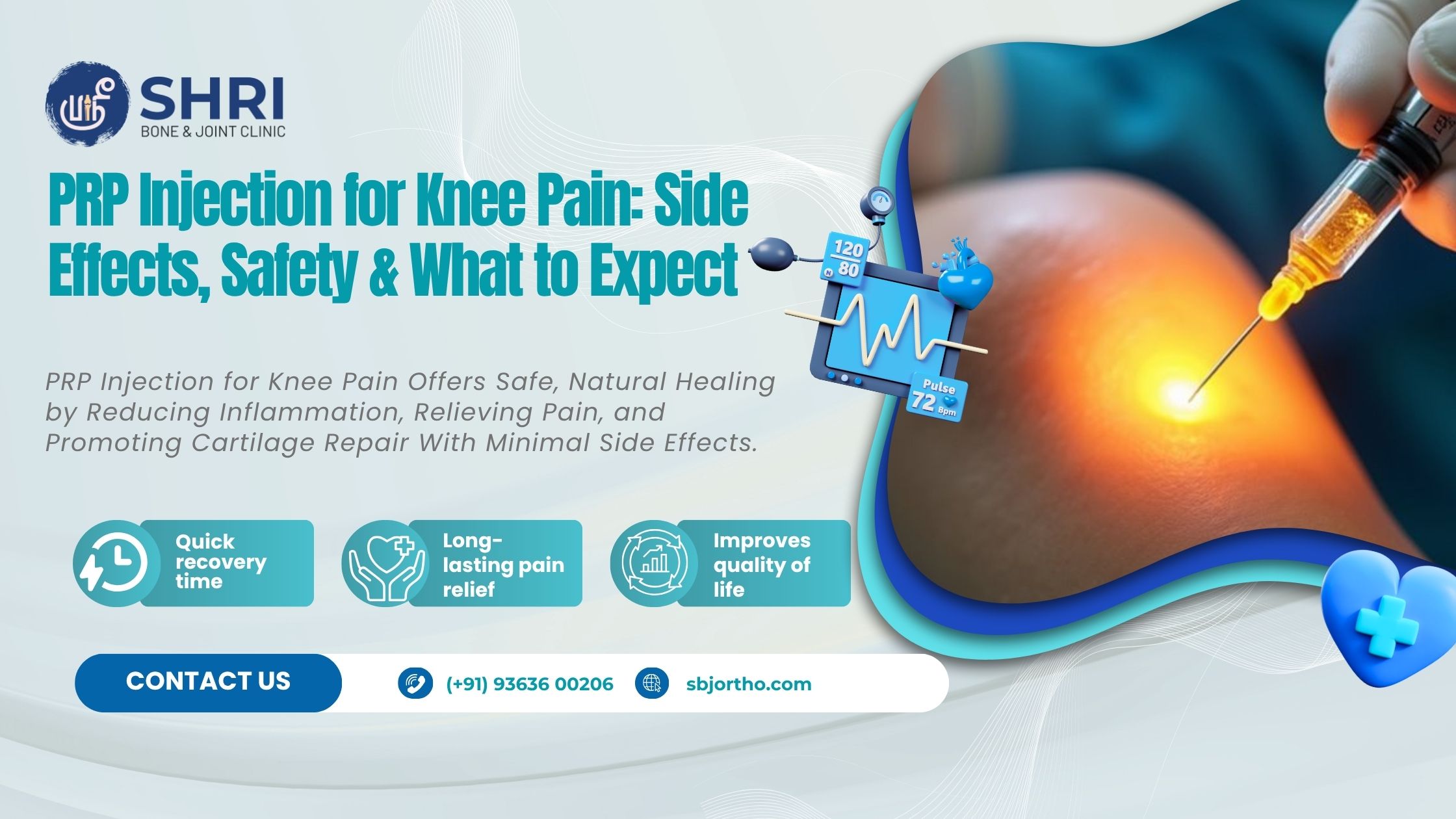PRP (Platelet-Rich Plasma) therapy is becoming increasingly popular for treating knee pain caused by arthritis, injuries, and degeneration. But as with any medical procedure, it’s natural to wonder about its side effects and long-term safety. In this blog, we’ll walk you through everything you need to know about PRP injection knee side effects, how the treatment works, and what you can expect before and after the injection.
What is PRP Injection for the Knee?
PRP therapy involves drawing a small amount of your blood, processing it to concentrate the platelets, and then injecting the platelet-rich plasma into the knee joint. These platelets contain growth factors that promote healing, reduce inflammation, and help regenerate damaged tissue. It’s a non-surgical option for patients who want to avoid more invasive procedures like knee replacement.
Is PRP Injection Safe?
Yes, PRP is considered one of the safest orthopedic injection therapies available. Since it uses your own blood, there is minimal risk of allergic reactions, disease transmission, or rejection. That said, understanding the potential side effects is important for making an informed decision.
Common Side Effects of PRP Knee Injections
While most patients experience little to no discomfort, some may notice:
- Mild Pain or Swelling: Temporary inflammation or soreness at the injection site is common and usually subsides within a few days.
- Joint Stiffness: Some stiffness may occur in the first 24–48 hours post-injection.
- Bruising: Minor bruising around the injection site can appear but is typically harmless.
- Warmth or Redness: As part of the healing response, the area might feel warm for a day or two.
- Fatigue or light-headedness: In rare cases, some individuals feel dizzy after blood withdrawal or the injection process.
These symptoms are generally self-limiting and do not require any intervention. Most patients return to light activity the same day and resume normal activity within a week.
Serious Side Effects – Are They Possible?
Serious complications from PRP injections are extremely rare but can include:
- Infection (very uncommon due to sterile techniques)
- Nerve or blood vessel injury
- Persistent pain beyond a few days
When performed by experienced professionals using ultrasound guidance, the risk of these issues is extremely low.
What Should You Do After a PRP Injection?
- Rest the knee for 24–48 hours
- Avoid high-impact activity for about a week
- Apply ice if there’s swelling or discomfort
- Start gentle physiotherapy as advised
- Avoid NSAIDs (like ibuprofen) for a few days, as they may interfere with the healing process
Your doctor will guide you through a recovery plan tailored to your condition and response.
Who Should Avoid PRP Therapy?
PRP is generally safe, but it may not be suitable for:
- Patients with bleeding disorders
- Those with active infections
- Individuals on strong blood thinners
- Patients with advanced joint damage requiring surgical repair
Is PRP Effective for Everyone?
While many people report excellent relief, results vary. PRP works best in patients with:
- Early to moderate osteoarthritis
- Partial ligament or meniscus injuries
- Inflammatory joint conditions with preserved joint space
In cases where PRP may not be effective enough, other options such as stem cell therapy or surgery may be recommended.
Where to Get PRP Injection for Knee Pain in Chennai?
If you’re looking for personalized, expert care for knee pain, Shri Bone & Joint Clinic is a trusted name in Chennai. The clinic is known for its advanced orthopedic solutions, including PRP Treatment in Chennai and comprehensive joint care. Patients are evaluated thoroughly to determine whether prp injection for knee pain or other therapies are suitable for their condition.
Who is the Best Doctor for PRP Knee Injections in Chennai?
Dr. Shriram Krishnamoorthy, one of the most experienced Orthopedic Specialists in Chennai, leads the team at Shri Bone & Joint Clinic. With a focus on regenerative and non-surgical treatments, he has helped hundreds of patients manage chronic knee conditions effectively using PRP, hyaluronic acid, and other modern therapies.
Final Thoughts
PRP knee injections are safe, minimally invasive, and highly effective for many patients dealing with chronic knee pain. While side effects are rare and usually mild, it’s essential to have your treatment performed by experienced professionals. With the right diagnosis, technique, and post-care, PRP can be a game-changer in your journey to pain-free movement.

